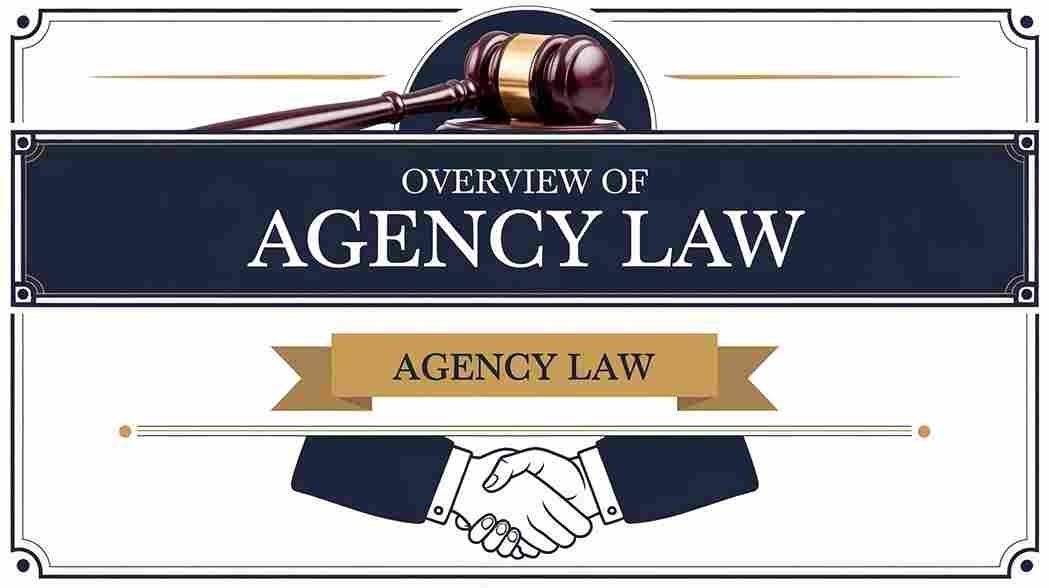Agency law is a foundational yet often overlooked area of legal study. It determines when one party (the principal) can be held legally responsible for the actions of another (the agent). This relationship is crucial in business and corporate law, as corporations can only act through their agents. Understanding agency law is essential for navigating liability, contracts, and fiduciary duties.
What is an Agency Relationship?
An agency relationship arises when three elements are present:
- Agreement: The principal and agent agree that the agent will act on behalf of the principal.
- Control: The principal has the right to control the agent’s actions, even if not micromanaged.
- Acting on Behalf: The agent acts for the benefit of the principal.
For example, a real estate agent acts on behalf of a home seller, and senior executives act on behalf of corporations like Meta (formerly Facebook).
Case Study: Gorton v. Doty
In Gorton v. Doty, a teacher, Ms. Doty, lent her car to a football coach to transport students to a game. The coach caused an accident, injuring a student. The court ruled that Ms. Doty was liable because an agency relationship existed:
- Agreement: Ms. Doty agreed to lend her car if the coach drove it.
- Control: She specified how the car should be used (only the coach could drive it).
- Acting on Behalf: The coach was acting to fulfill a task Ms. Doty supported (transporting students).
This case illustrates how agency law can impose liability on principals for their agents’ actions.
Respondeat Superior: Employer Liability
Respondeat superior (“let the employer answer”) holds employers liable for their employees’ torts if:
- The agent is an employee (not an independent contractor).
- The tort occurs within the scope of employment.
For example, a live-in gardener is likely an employee, while a gardener servicing multiple properties is likely an independent contractor.
Case Study: Ira Bushey & Sons v. United States
In this case, a drunken Coast Guard sailor damaged a dry dock by spinning valves. The court held the U.S. liable under respondeat superior:
- Employee Status: The sailor was an employee, not an independent contractor.
- Scope of Employment: Although the sailor’s actions were not directly serving the Coast Guard, they were a foreseeable result of his employment.
This case highlights how courts use foreseeability to determine liability, even when the employee’s actions are unusual.
Fiduciary Duties in Agency Relationships
Agents owe fiduciary duties to their principals, including:
- Loyalty: Acting in the principal’s best interest.
- Care: Performing duties competently.
- Obedience: Following the principal’s lawful instructions.
These duties are critical in corporate law, where executives must act in the best interest of the company and its shareholders.
Policy Implications of Agency Law
Agency law balances liability and incentives:
- Liability: Holding principals accountable encourages them to supervise agents and implement safeguards.
- Incentives: Overly broad liability could stifle economic activity by making employers reluctant to hire.
For example, after Ira Bushey, the Coast Guard might implement stricter controls or require dry docks to install locks on valves.
Can Principals Disclaim Agency Relationships?
Parties cannot simply disclaim agency relationships to avoid liability. The law looks at the substance of the relationship, not just labels. For example, an employer cannot claim an employee is not an agent to escape liability for their actions.
Conclusion: The Importance of Agency Law
Agency law is a cornerstone of business and corporate law, determining when principals are liable for their agents’ actions. It balances accountability with economic efficiency, ensuring that principals take reasonable precautions while allowing businesses to operate effectively. As future lawyers, understanding these nuances will be crucial for advising clients and shaping legal outcomes.

Leave a Reply